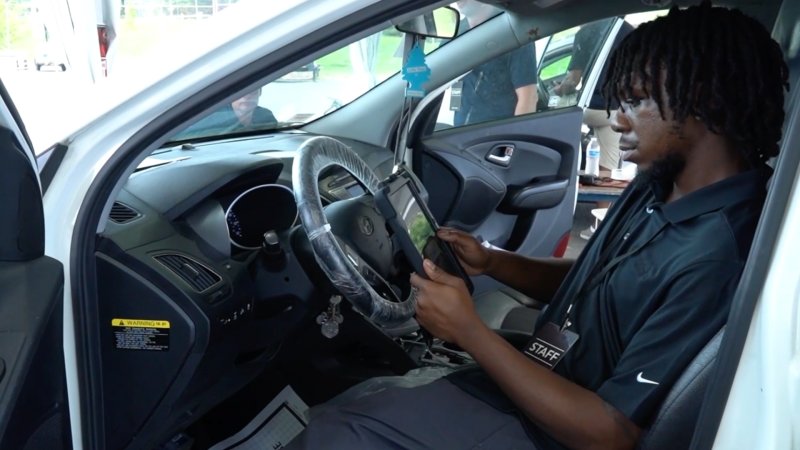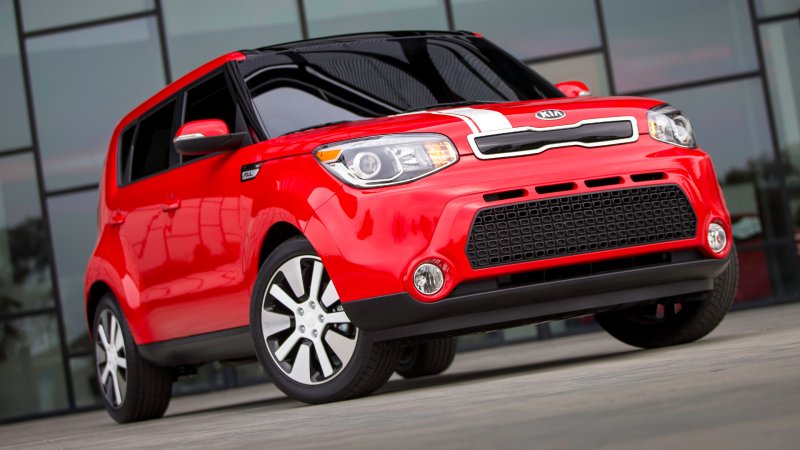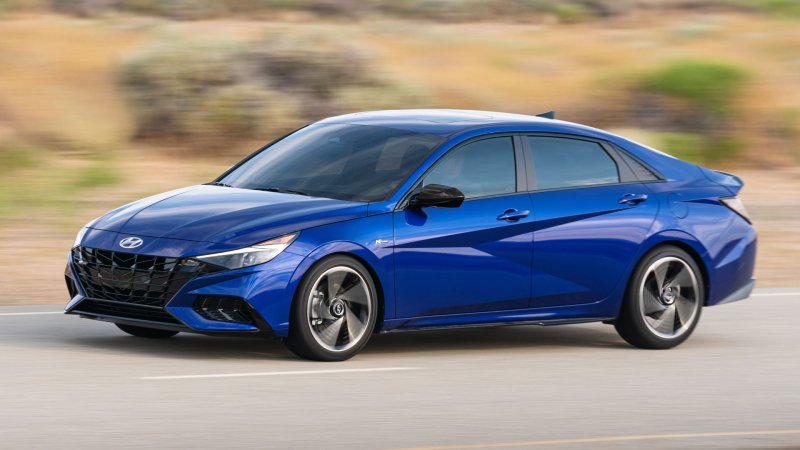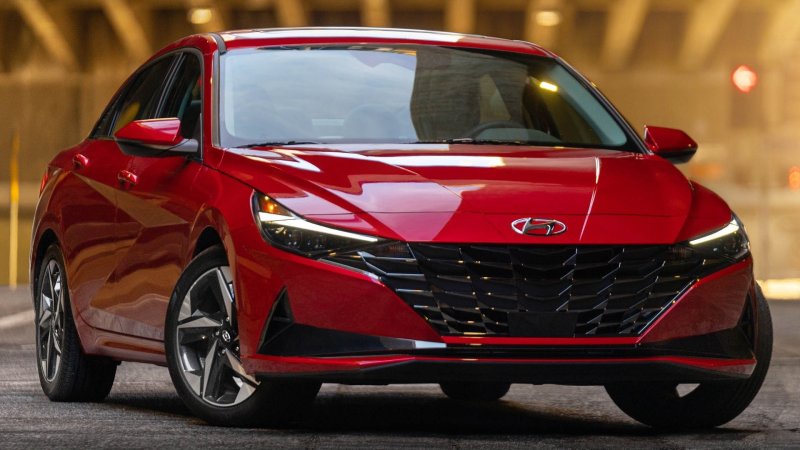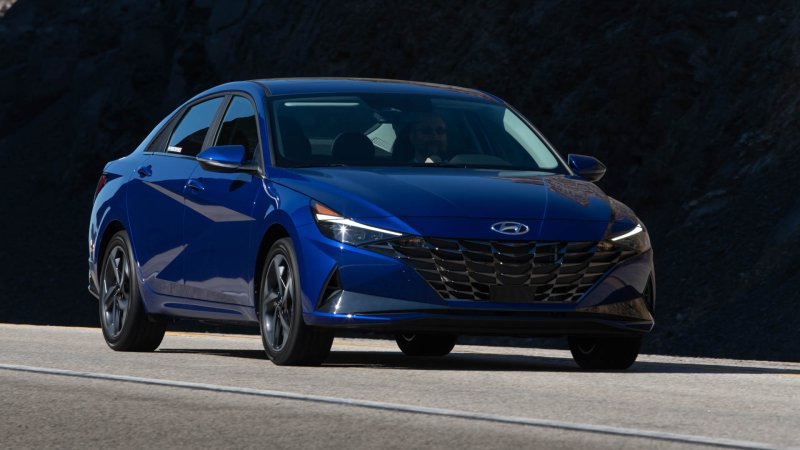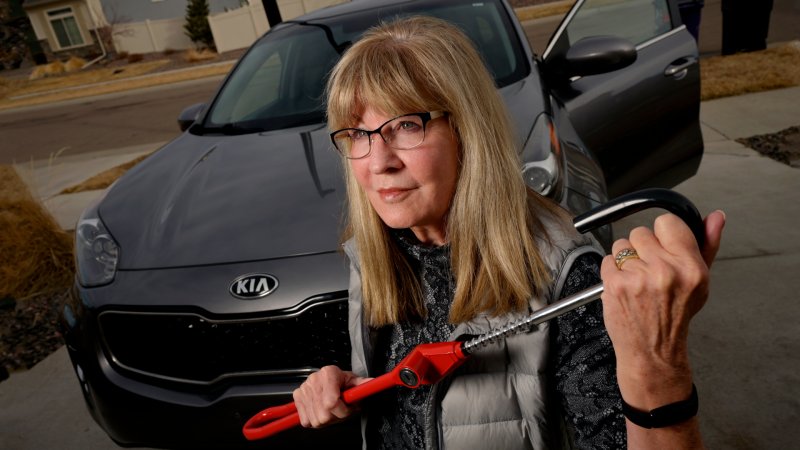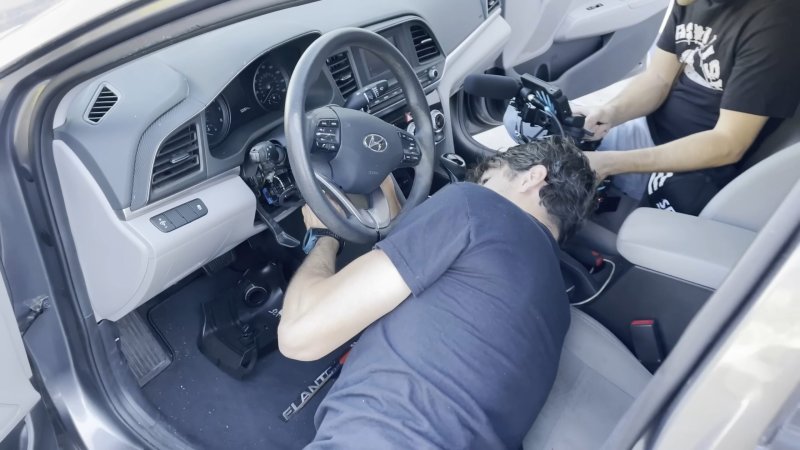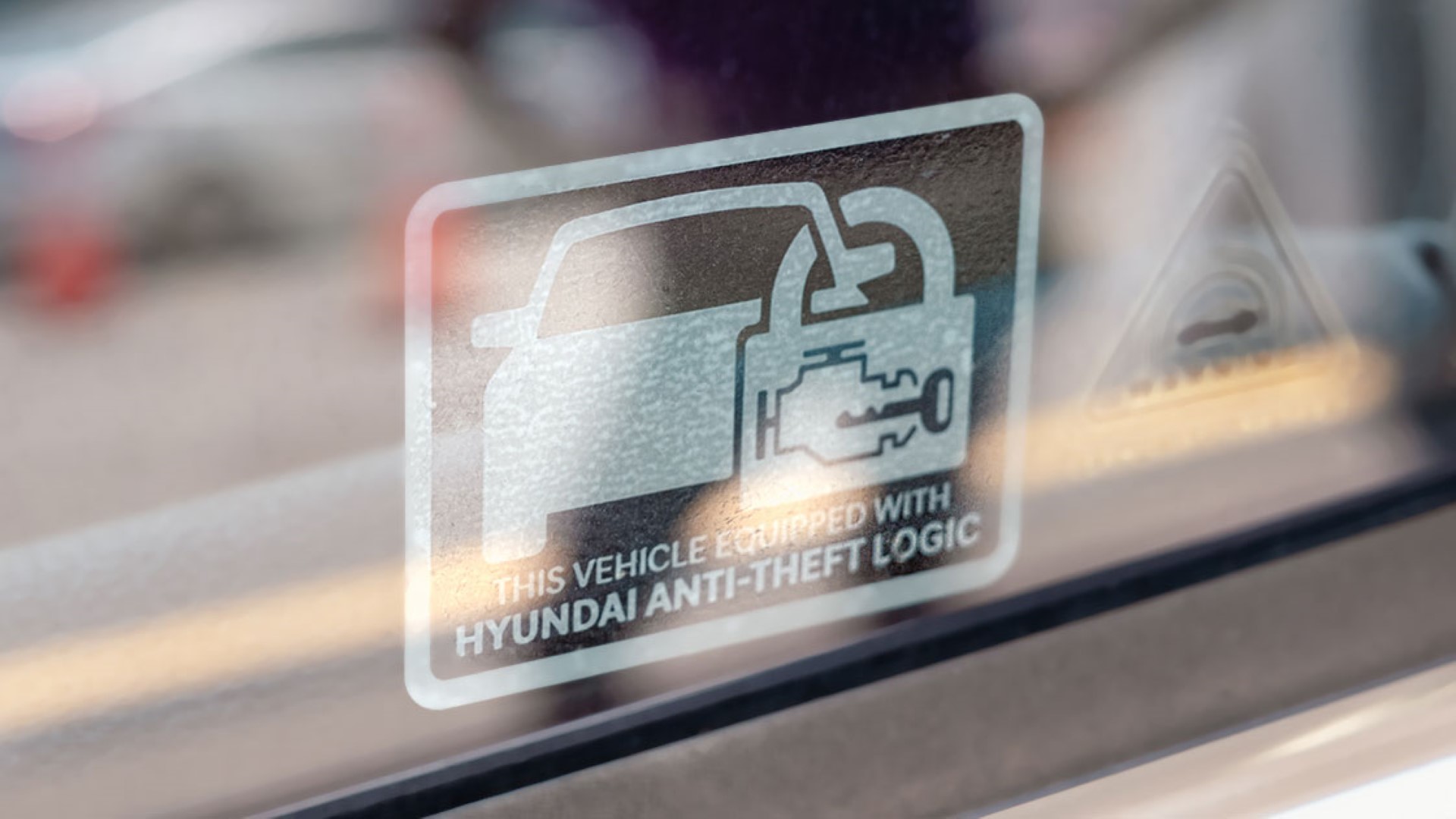

When a viral trend remains popular years later, the creator usually gets showered with global kudos. But that’s not the case with the Kia Challenge. Originating on TikTok, a how-to video created by Milwaukee teenagers focused on car theft, particularly Kia and Hyundai vehicles. The joyrides were not only damaging but deadly. A software update, however, has been shown to drastically decrease the number of vehicle thefts for the maligned South Korean automakers.
Electronic immobilizers, which prevent a vehicle from starting without the key fob present, are basically a standard factory-installed anti-theft device—for most automakers, anyway. But for Kia and Hyundai models built as recently as 2023, the immobilizer was not standard. Credit the kids, even though criminals, for their ingenuity in discovering this missing safeguard.
So, how much of a problem did the self-proclaimed “Kia Boyz” create? According to the Detroit Free Press, the Highway Loss Data Institute (HLDI) reported that theft claims for 2003 through 2023 model-year Hyundai and Kia vehicles increased 11-fold between the first half of 2020 and the first half of 2023. The Kia Boyz began their thievery in early 2021.

However, a software upgrade wouldn’t be available until early 2023. The automakers didn’t appear to be showing any urgency, telling owners to park in a garage or to purchase wheel locks like The Club. One effort, if it can be called that, saw Hyundai donate 80 of the legendary wheel locks to the Cleveland Police Department. Meanwhile, nearby Columbus was seeing reports of 17 stolen Hyundais and Kias per day. Eventually, the automakers offered to reimburse owners for out-of-pocket expenses.
Once the enhanced software was offered, the HLDI reported that vehicles installed with the free update had a 53% lower rate of theft claims than those without. All theft claims were counted in the report, which included removed parts, stolen personal items, and theft of the entire vehicle. Thanks to the new software, whole vehicle theft alone dropped by 64%. Through July of this year, about 60% of eligible vehicles had received the update.
Although the theft ring originated in the American Midwest, related incidents extended to Canada and Australia. Additional reporting from CBS News states that, at its peak, at least 14 crashes and eight fatalities were connected to the challenge, according to figures provided by the National Highway Traffic Safety Administration (NHTSA).
In all, the security vulnerability impacted about 9 million vehicles. The affected models included nearly the automakers’ full lineups, from small cars to three-row SUVs. Hyundai and Kia were also named in a class-action suit by owners whose vehicles were stolen. Earlier this year, the automakers agreed to a $200 million settlement.
But the new software is not a perfect fix or foolproof, and claims are still “elevated” even for models with the new software installed, per the HLDI.
A Hyundai owner in Las Vegas had been using a wheel lock in his 2015 Elantra but “got a little comfortable” after installing the software upgrade, reported the Detroit Free Press. Instead of using the wheel lock, he believed locking the car with the key fob was enough of a safeguard. Nope,—his vehicle was not only stolen but wrecked. He’s since replaced his totaled Hyundai with a Nissan.
Overall, Hyundai and Kia car thefts are down from their pandemic peak but continue to exceed the industry average, even with the anti-theft update. The HLDI reminds owners to lock their vehicles using the fob, which will activate the software-based immobilizer. The lock button or switch on the door handle will not.
